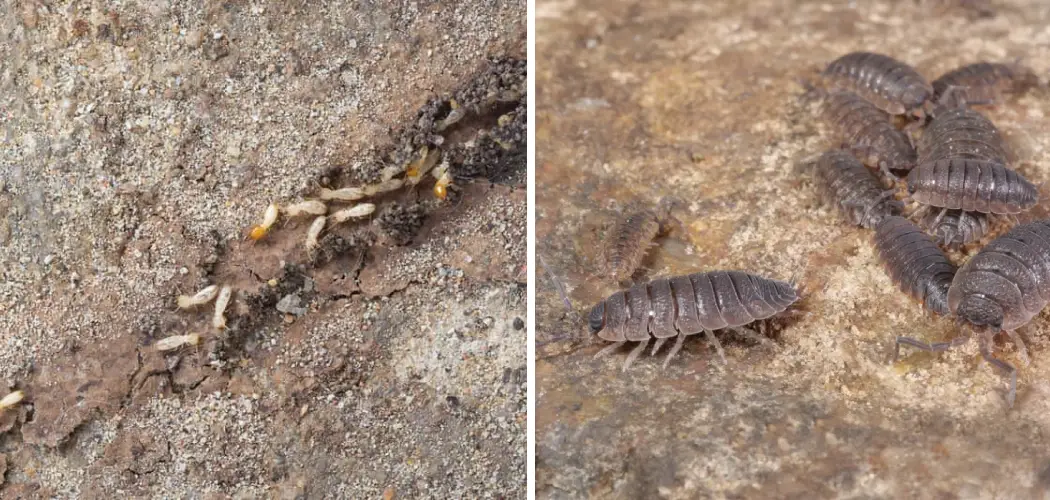Many homeowners dread the thought of bugs infiltrating their living spaces. No one likes to see a family of spiders crawling up the walls or ants marching about in search of food. Unfortunately, basements can provide a haven for these little critters if you’re not careful – but don’t worry!
There are plenty of effective ways to keep your basement free from annoying and potentially dangerous pests. In this blog post, we’ll discuss several key steps of how to keep bugs out of the basement that you can take to ensure your basement remains bug-free all year long.
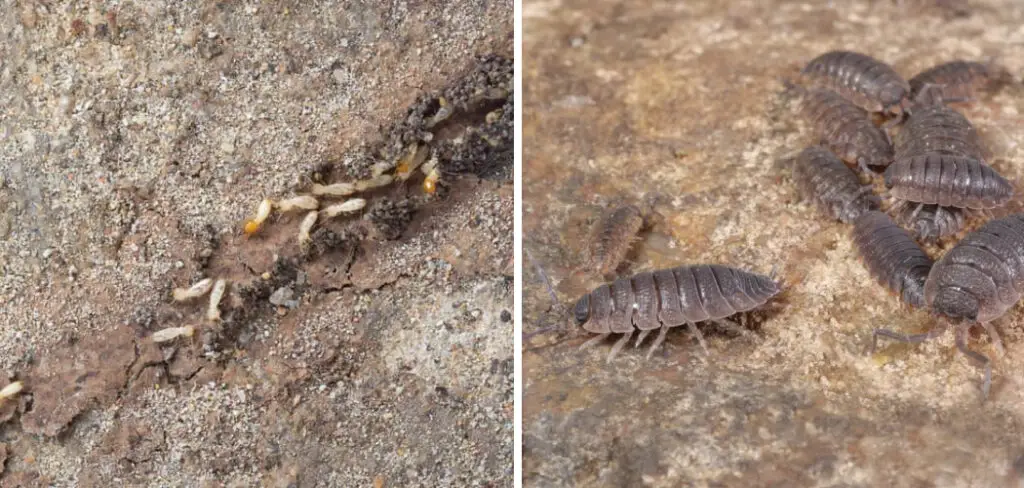
Will a Dehumidifier Get Rid of Bugs?
The short answer is yes; a dehumidifier can help to reduce the number of bugs in your basement. Reducing the humidity levels makes the environment less hospitable for insects and other pests. A dehumidifier removes moisture from the air, which reduces the amount of water that bugs need to survive. This means they’re less likely to linger in an area with a dehumidifier and are more likely to look for other places to stay.
It’s important to note, however, that having a dehumidifier alone is not enough. You need to take additional steps if you want to effectively keep bugs out of your basement. You should practice proper sanitation, like regular vacuuming and dusting and keeping food stored in sealed containers. Additionally, seal off any cracks or openings that could let bugs into your home. And, of course, ensure you properly empty the dehumidifier’s water tank to keep it running efficiently.
Additionally, to maximize the effectiveness of a dehumidifier, you may want to consider installing an air purifier in your basement. This can help to reduce any odors that could be attracting bugs, as many insects are drawn by smells.
10 Methods on How to Keep Bugs Out of the Basement
1. Keep the Basement Clean
One of the best ways to keep bugs out of the basement is to keep it clean. Sweep and vacuum regularly, and mop the floor weekly. This will remove any food or water sources that might attract bugs.
In addition, declutter the basement to eliminate hiding places for bugs. If there are structural cracks or holes, repair them to prevent bugs from entering your home. However, keep in mind that this alone will not keep bugs out.
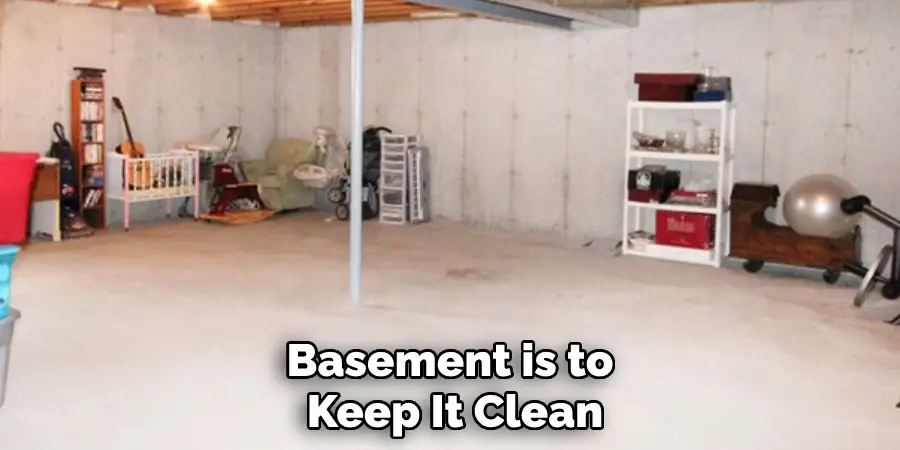
2. Inspect Items Before Bringing Them Into the Home
Any items that are brought into the home, such as boxes or furniture, should be inspected for bugs before being brought inside. Any items that are infested with bugs should be discarded immediately.
It is also a good idea to regularly check stored items, such as boxes and furniture, for signs of bugs. If any signs are found, the item should be treated or discarded.
3. Store Food in Sealed Containers
Food should always be stored in sealed containers to prevent bugs from getting to it. This includes both pantry items and any open food that might be sitting out. Place any leftovers in air-tight containers and store them in the refrigerator or freezer. If you have pet food that needs to be stored, make sure it is sealed tightly in a container as well.
By sealing up food sources, insects will not be able to access them and thus won’t be attracted to your basement. However, if you do not store food properly, you may be inviting bugs into your basement.
4. Fix Leaks Promptly
Leaks in the basement can provide a water source for bugs, so it is important to fix them promptly. In addition, any standing water should be removed as soon as possible as it can attract bugs. It’s also important to check the outside of your home for any water leaks and seal them if possible.
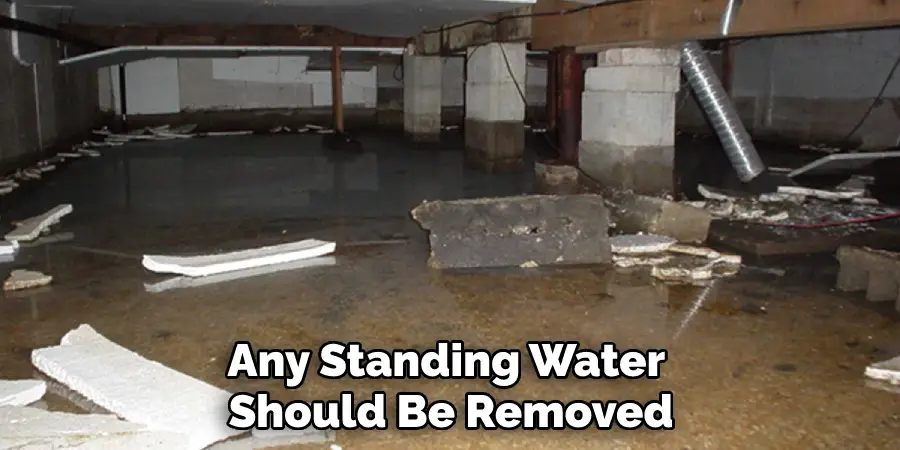
While this won’t guarantee your basement is bug-free, it’s a good start. Although leaks and standing water can be difficult to spot, some signs you may notice are buckling floors or walls, damp patches, or a musty smell.
5. Keep Trash Cans Covered
Trash cans are another potential food source for bugs, so it is important to keep them covered at all times. In addition, trash should be taken out on a regular basis to prevent it from accumulating. If possible, it is also a good idea to store the trash cans outside of the basement.
This will help ensure that bugs don’t come in contact with food sources that attract them. Additionally, make sure to clean any spills that occur and immediately discard any items that are potentially contaminated.
6. Use Weather Stripping
Weather stripping can be used around doors and windows to help seal off the basement from the outside world. This will make it more difficult for bugs to get inside. Weather stripping should be checked regularly for wear and tear and replaced when necessary. Installing a draft stop along the threshold of an exterior door can also help to keep bugs out of the basement.
If the weather stripping or draft stop is not doing the job, consider applying silicone sealant around doors and windows. This will provide an additional layer of protection against bugs. Lastly, make sure that any holes or cracks in the foundation are properly sealed with caulking.
7. Use Caulking
Caulking can also be used around doors and windows, as well as any cracks or crevices in the walls or floors of the basement. This will help to seal off any potential entry points for bugs. Make sure to choose caulking that is designed for indoor purposes, as outdoor caulking may contain toxic chemicals.
If possible, opt for eco-friendly caulking that is free of volatile organic compounds (VOCs) to protect your health. Additionally, make sure that the caulking is properly applied and left to cure for the full amount of time recommended by the manufacturer.
8. Use a Dehumidifier
A dehumidifier can help to reduce the humidity in the basement, which will make it less inviting for bugs. In addition, it can also help to prevent mold and mildew from growing, which can attract bugs.
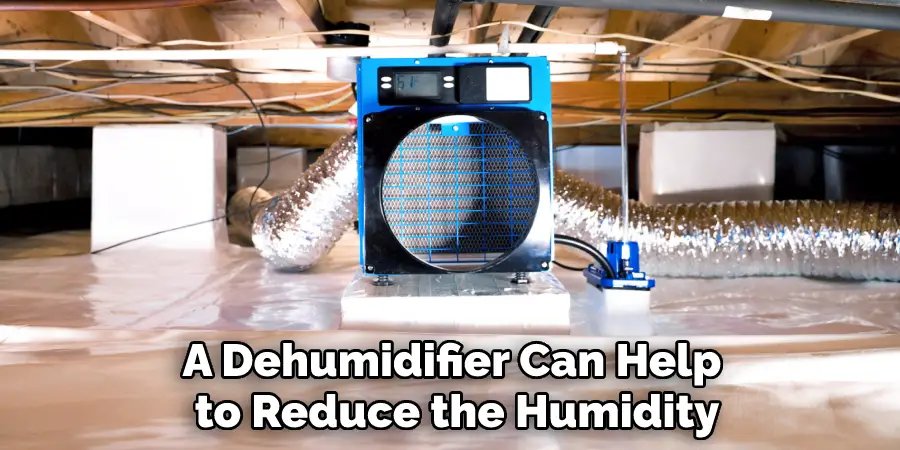
Be sure to empty and clean the dehumidifier regularly, following the manufacturer’s instructions. Even better, invest in a dehumidifier that can be attached to a hose and drains automatically. This will reduce your maintenance tasks and keep the humidity in check more effectively.
9. Install Screens on Doors and Windows
Screens on doors and windows will help to keep bugs out while still allowing airflow into the basement. Make sure to check for rips or tears in the screens and replace them as needed.
To further enhance your bug-resistant measures, use tightly woven mesh screens which are specifically designed to keep out smaller insects. Additionally, make sure to weatherstrip the frames around windows and door openings to prevent gaps that could let bugs in.
10. Call an Exterminator
If all else fails and there is a bug problem in the basement, call an exterminator who will be able to safely and effectively eliminate the problem. This should be a last resort, as there are many methods of pest control that can be done safely and cheaply by the homeowner. However, for large infestations, an exterminator may be necessary to manage the problem.
Make sure to research local exterminators thoroughly before making a choice. Look for one with good reviews and who is experienced in dealing with the type of pest that is present. Make sure to ask questions about their methods and only hire a licensed professional who practices safe, environmentally friendly pest control.
Things to Consider When Keeping Bugs Out of the Basement
1. Inspect the outside of Your Home:
Take a look around the perimeter of your home to see if there are any potential entry points for bugs or insects. Check for cracks, gaps, or holes in the foundation and walls, as well as gaps in windows or doors. If you find any, seal them up with caulk or another suitable material.
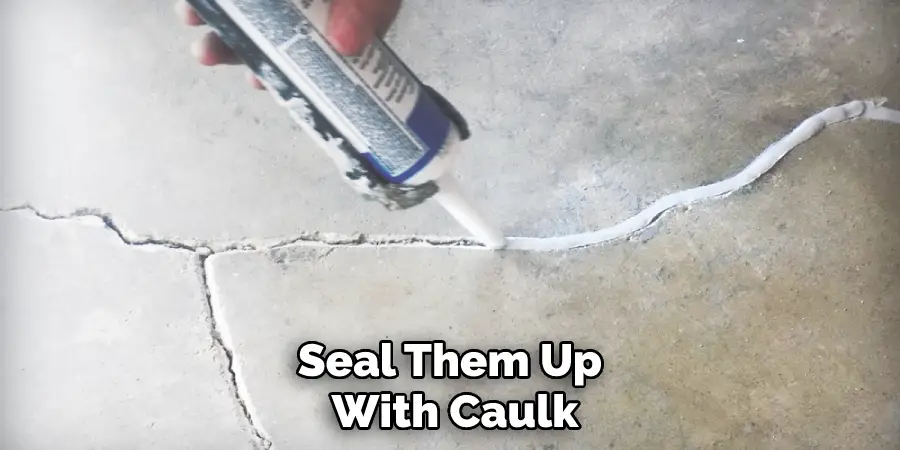
2. Check the Basement for Places Where Bugs Can Hide:
Inspect your basement for any places that might provide refuge for bugs or insects. This could include piles of leaves, mulch, or grass clippings near the foundation, cracks in the walls and floor, or even standing water. If you find any likely hiding spots, remove them and seal up any cracks.
3. Use a Dehumidifier to Keep Humidity Levels Low:
High humidity levels can attract certain types of bugs and make it easier for them to survive in your basement environment. Investing in a dehumidifier can help reduce humidity levels in your basement and make it less hospitable to unwanted pests.
Conclusion
You can keep bugs out of your basement by following these simple tips. Make sure to keep food and water sources away from the perimeter of your home, block all cracks and crevices leading into your basement, and invest in a good quality dehumidifier.
By taking the following precautions on how to keep bugs out of the basement, you can rest assured that your basement will be free of pests.

